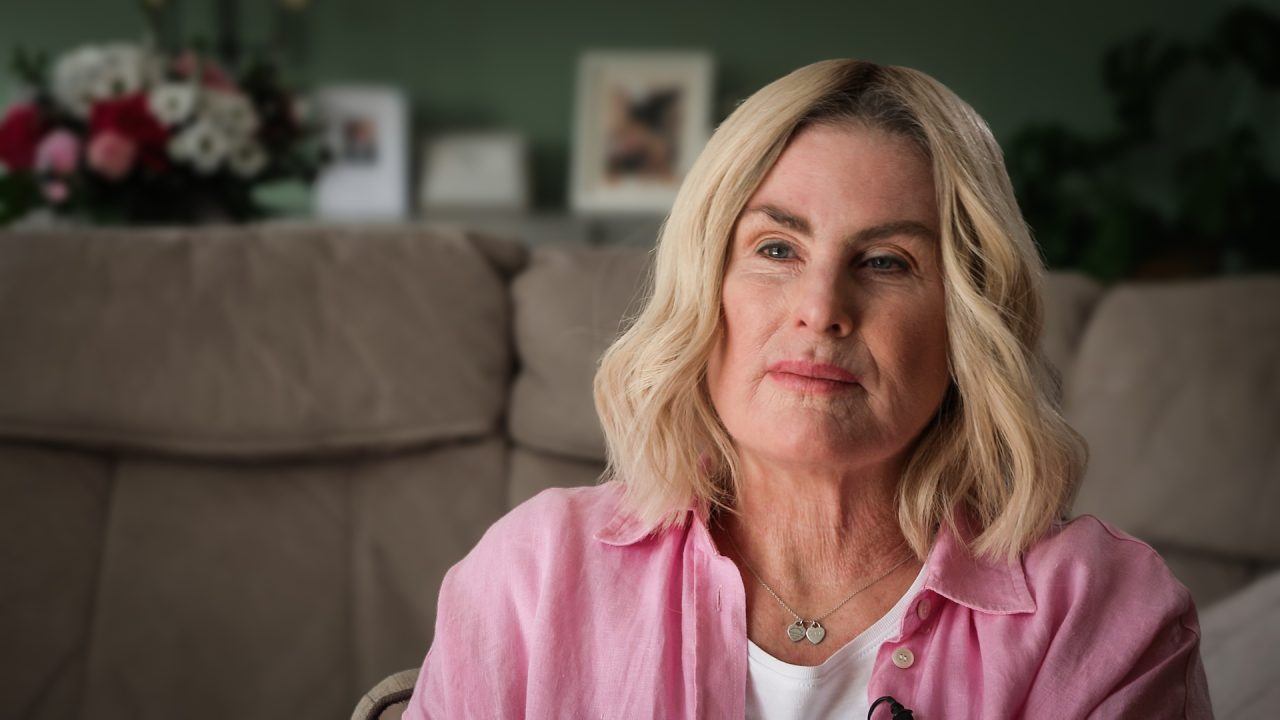Key Points
-
 Topical steroids are among the most commonly prescribed medications by GPs
Topical steroids are among the most commonly prescribed medications by GPs -
 They are used to treat a range of skin disorders and for the vast majority of patients they are safe and effective
They are used to treat a range of skin disorders and for the vast majority of patients they are safe and effective -
 But some people say they have suffered adverse reactions far worse than their original condition
But some people say they have suffered adverse reactions far worse than their original condition -
 Patients and doctors are calling for more research into topical steroid withdrawal (TSW)
Patients and doctors are calling for more research into topical steroid withdrawal (TSW) -
 Karyn Flett from Fife has used steroid creams to treat her eczema for years
Karyn Flett from Fife has used steroid creams to treat her eczema for years -
 She stopped using them three years ago but has noticed her symptoms get much worse
She stopped using them three years ago but has noticed her symptoms get much worse -
 Karyn found a community of people suffering from similar symptoms on TikTok
Karyn found a community of people suffering from similar symptoms on TikTok
Karyn Flett has used topical steroids to control her eczema for most of her life.
The 54-year-old from Thornton in Fife has relied on repeat prescriptions to treat her condition.
But she says she didn’t get any help from the NHS when she stopped using the creams three years ago and her symptoms worsened.
“You basically get no sleep whatsoever,” Karyn told Scotland Tonight.
“You’ve got mass insomnia and you’re scratching. It’s a deep bone itch, it’s like a neuropathic itch. It’s nothing like an eczema itch. You tear like you’re trying to get down to the bone. It’s absolutely relentless.
“You have a thermal dysregulation that happens to your system and you can’t control your temperature.
“There’s also a part where you don’t have the ability to sweat, and this makes you feel like you’re just burning from the inside – it’s excruciating.
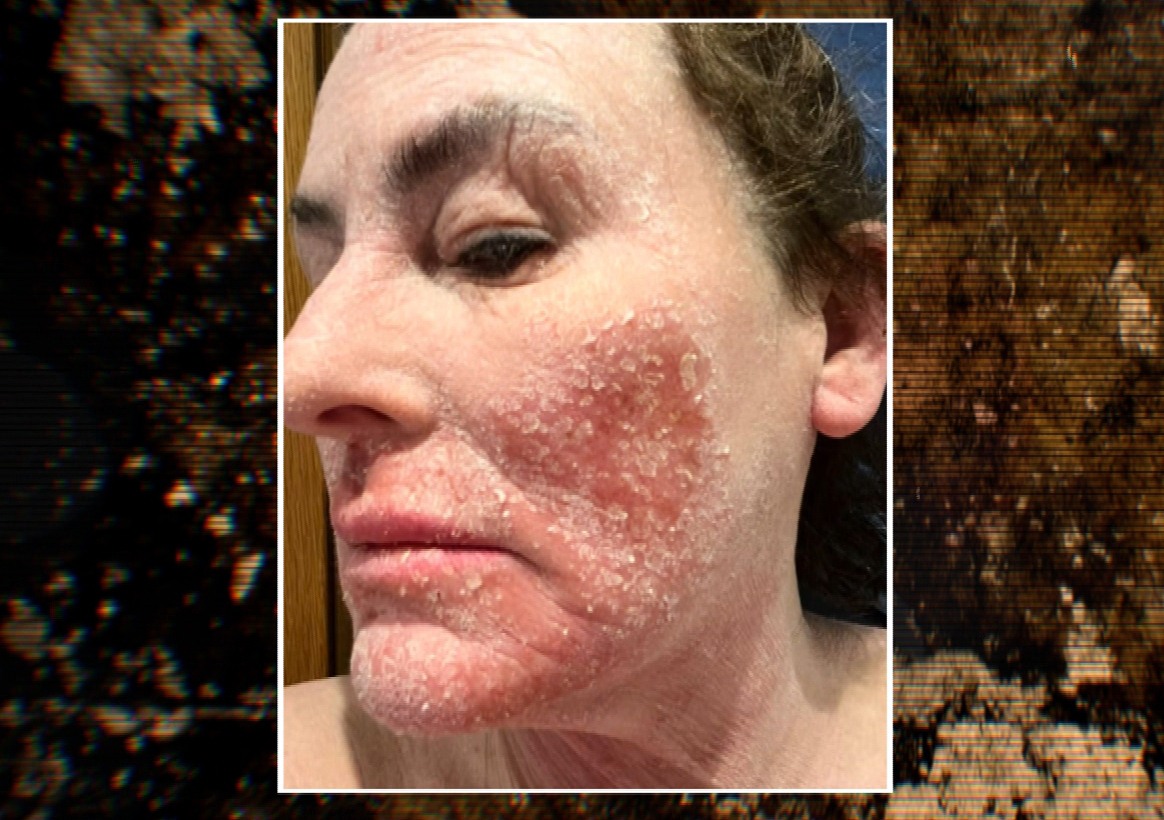 STV News
STV News“It’s something that you wouldn’t wish on your worst enemy. I do come from a loving family, but there are times when I was pushed to the limit. I don’t want to be here, to be honest.
“I just regret the very day we walked into that doctor’s office and I was given those little tubes of cream. They looked so innocent. But as far as I’m concerned, it’s absolute hell in a tube just waiting to unfold.”
Topical steroids are among the most commonly prescribed medications by GPs. They are used to treat a range of skin conditions and many Scots have used them at some point in their life.
However, patients and doctors are increasingly calling for more research into the treatment. Some people say they’re suffering debilitating reactions that are far worse than their original condition.
Finding answers is proving to be extremely challenging.
There is no medical pathway for topical steroid withdrawal (TSW), because it isn’t a clinical diagnosis. Therefore, no formalised treatment plan exists for those who present with the condition.
Karyn found a community of people suffering from similar symptoms on TikTok, where she met Anna Chrystal, a maxillofacial surgeon from Aberdeen. Anna had also used topical steroids to treat eczema, adhering to the guidelines and under her GP’s care.
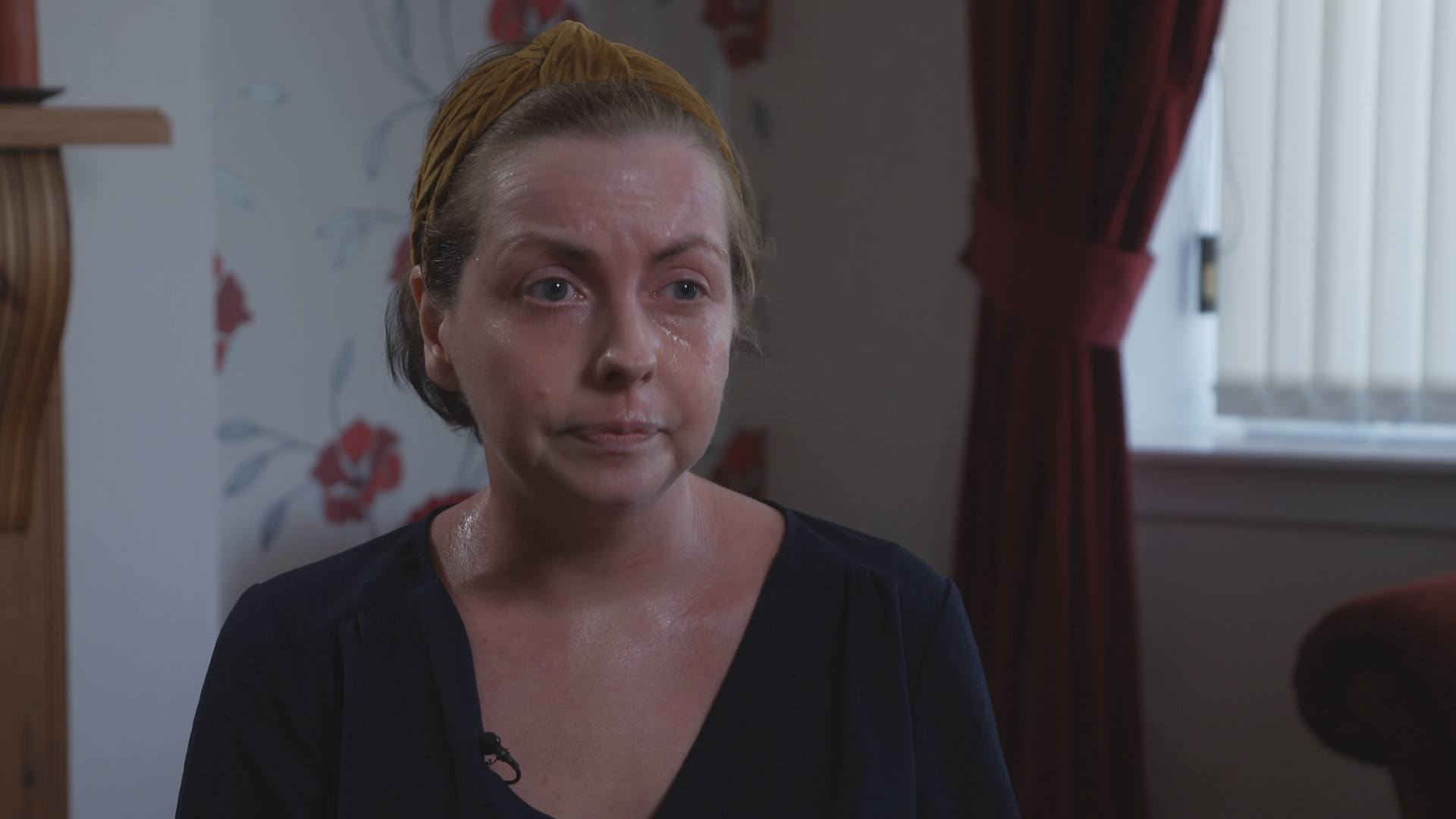 STV News
STV News“I used a 1% hydrocortisone cream,” said Anna. “It didn’t react in the same way that it normally did. It took it away, but the second I stopped using the steroid cream, it just came straight back. So I went to my GP and we increased the potency.”
Unfortunately for Anna, her health has been devastated. She was completely debilitated at her lowest point.
“I was oozing, weeping, bleeding and itchy to my bones from head to toe,” she said. “I was having to be bandaged on my limbs and my neck two or three times a day, and I wasn’t even able to feed myself or get to the toilet without help.”
Anna has also had to come to terms with being unable to perform her dream job as a surgeon despite training for years.
She said: “I spent a large proportion of my life washing my hands and wearing gloves, and that’s just not something that I’m going to be able to do going forward.
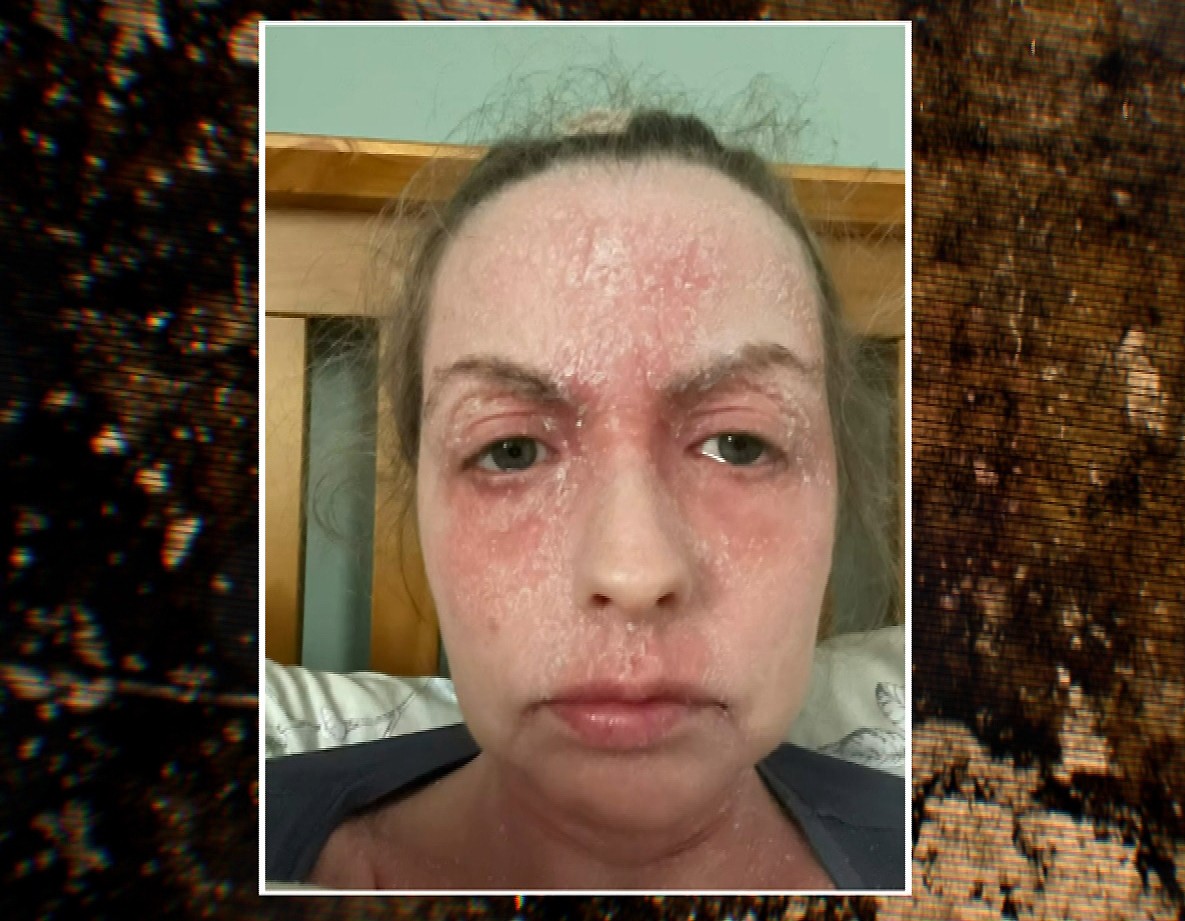 STV News
STV News“So I’m having to pursue other areas of medicine that are not specialised in maxillofacial surgery, oral medicine and look at something a little bit less hands-on.”
Both women are now on strong immunosuppressive drugs, often used for transplant or cancer patients. They have shared their experience of being dismissed by specialists and health professionals, as TSW is not a recognised medical condition.
Anna said: “I’d spoken to dermatology colleagues (about TSW) when I was a medical student and they all made it clear that they didn’t think it was the entity it was being portrayed as on social media, and that it was just people with worsening eczema.”
But Dr Ian Myles of the National Institute for Health has provided some hope to the TSW community.
Earlier this year, he completed some research after learning about TSW from his patients – but he couldn’t find anything of substance about the condition.
He said: “There was a tonne of information on Google and those other search engines. But if you looked at the medical literature, there wasn’t really anything other than a few articles arguing back and forth about whether or not the disorder existed.”
 STV News
STV NewsDr Myles realised he needed to take the next step with his own research. In a study of 16 participants, patients presenting with TSW showed an overproduction of niacin at a cellular level. Crucially, niacin is not present in patients with eczema.
He said: “When we started the project, I told the patient advocates that either their disease is going to look very, very similar to severe eczema and it’ll be hard to tease it apart, or it will look so obvious that we’ll all be angry that no one bothered to look earlier.
“So I knew that was a possibility, but it was, I guess, a little surprising just how overwhelmingly clear the signal was. Once you know [about] the niacin overproduction, you can then sit down and explain every other symptom the patients have that are not found in regular eczema.”
He’s calling for more research into TSW so clinicians can find out why most people can use topical steroids safely, but others – like Karyn and Anna – are so badly affected.
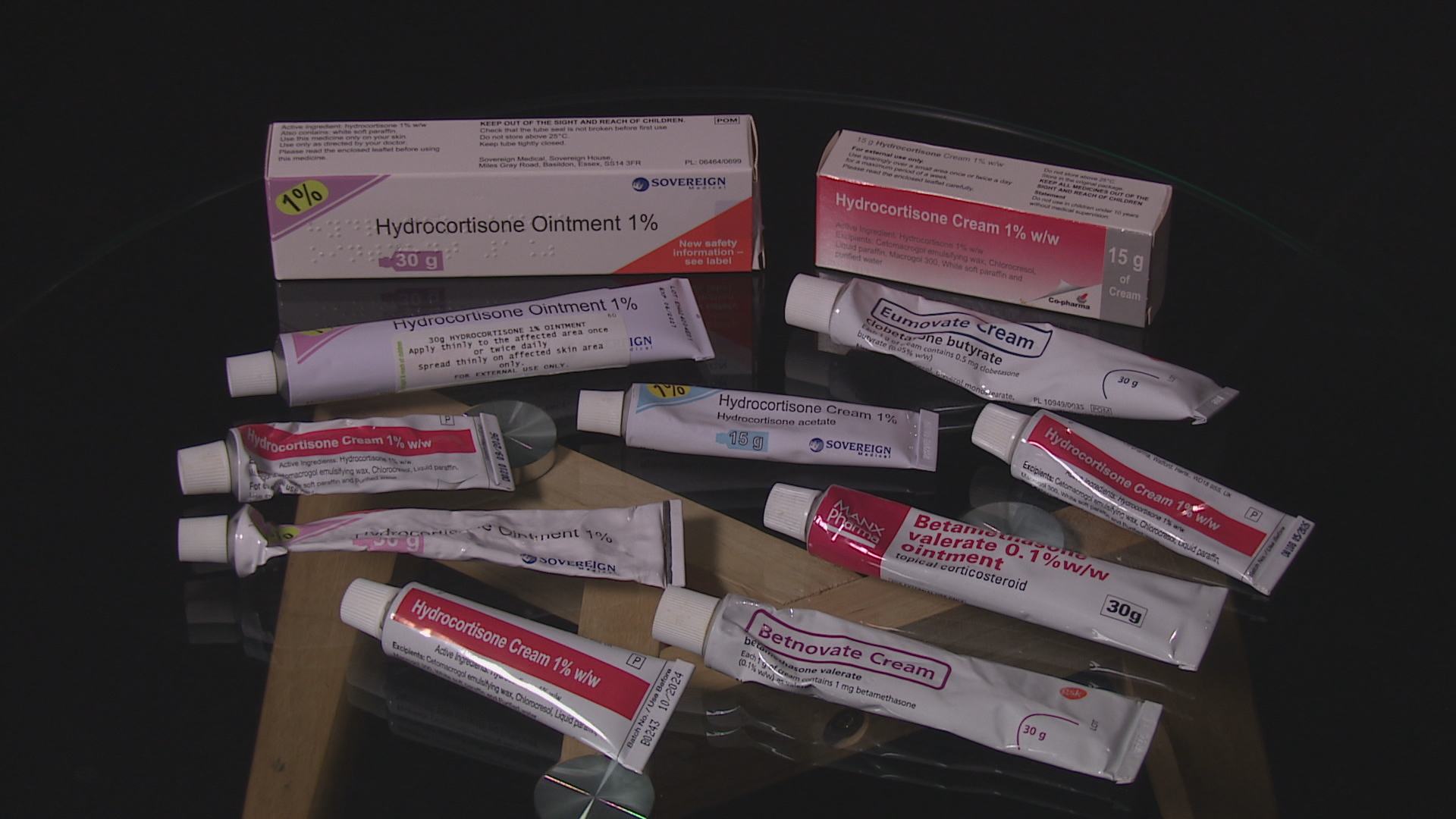 STV News
STV News“I hope the debate about whether TSW is a real disorder is over,” he said. I hope that other research groups will use the diagnostic criteria to enrol patients in their own studies. I really hope this is the opening conversation about better understanding and better research.”
Scotland Tonight asked to speak to health secretary Neil Gray or an NHS dermatologist about the issue but no-one was available.
A spokesperson for the Scottish Government said: “When used correctly, for many people, topical corticosteroids are a safe and effective treatment for skin conditions.”
Dr Tony Bewley of the British Association of Dermatologists agrees that topical steroids are safe and the best course of treatment for the vast majority of patients.
“Topical steroids used appropriately under supervision in an appropriate way for appropriate patients are usually very safe indeed,” he said.
However, Dr Bewley treats patients with TSW and has called on colleagues to do more to understand and help those presenting with symptoms.
He said: “Sadly, I think that the message about the difference between topical steroid withdrawal and other forms of skin problems – including the skin problem for which the topical steroid was originally given – I think there is confusion about that.
“I think there are some people who just haven’t even heard of this, but also that healthcare professionals have a bit of a wake-up call and understand that this is an important problem.
“We need to understand it and work with our patients.”
Watch the full report, Scotland Tonight: My Skin, My Story, at 8:30pm on STV and the STV Player.
Follow STV News on WhatsApp
Scan the QR code on your mobile device for all the latest news from around the country


